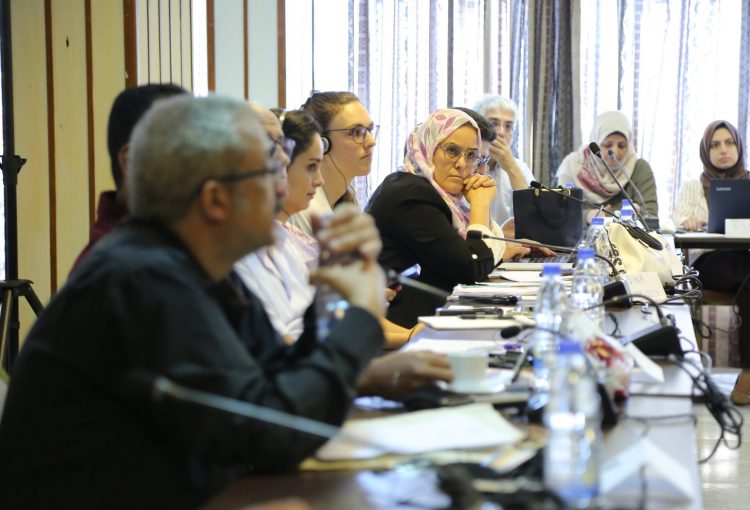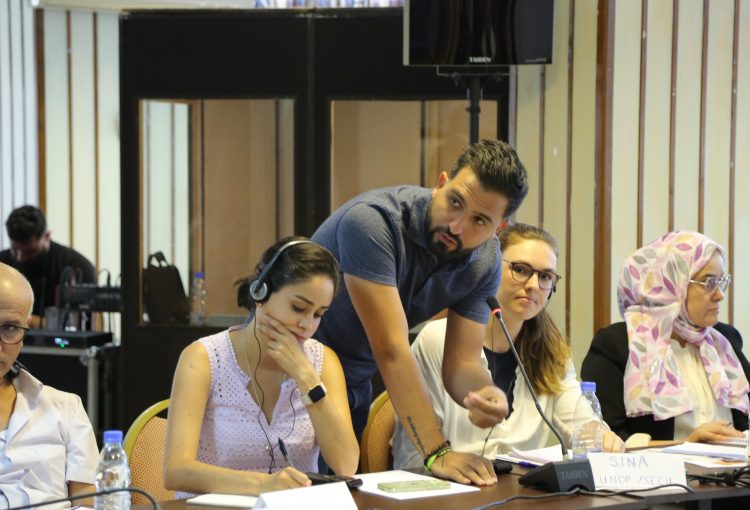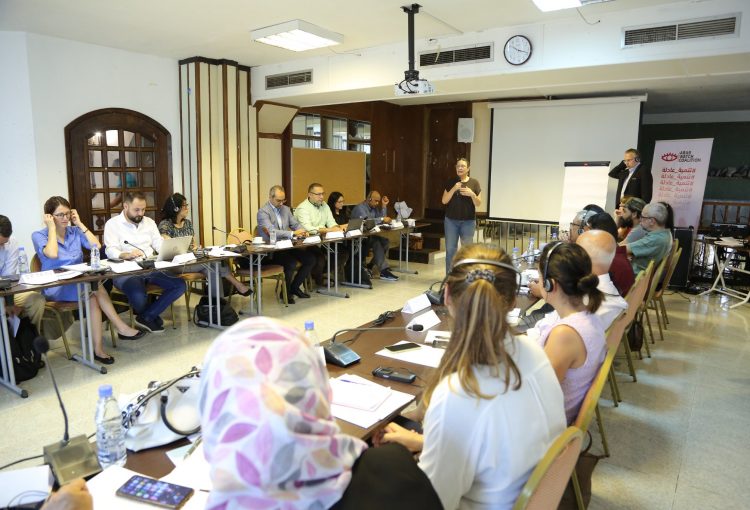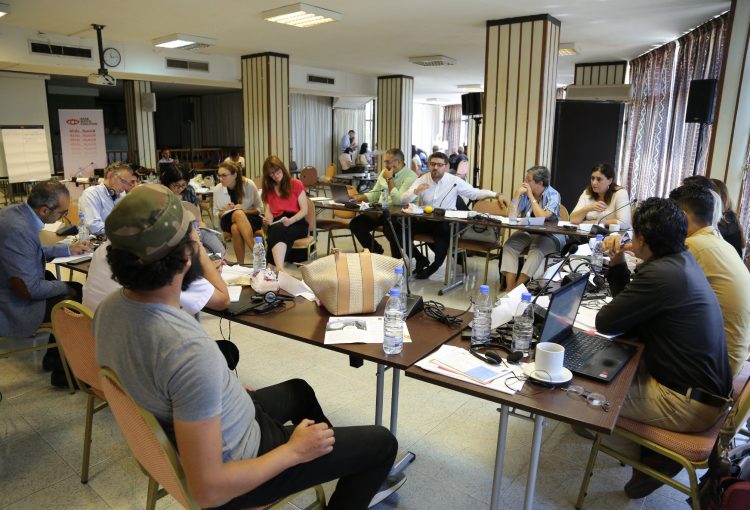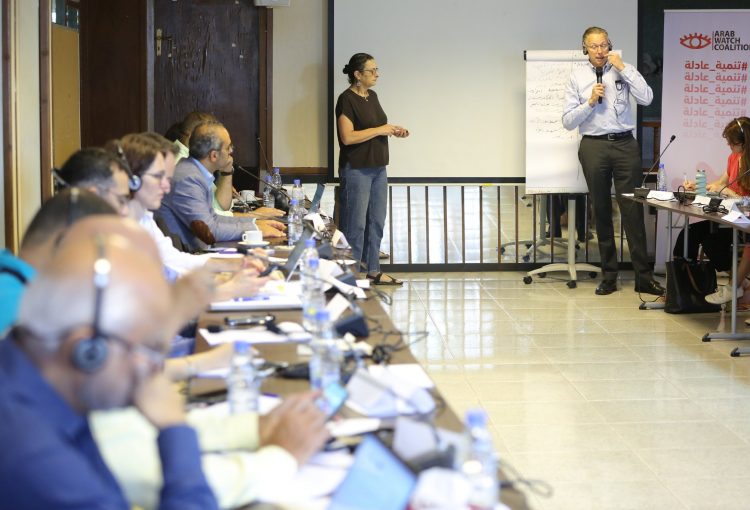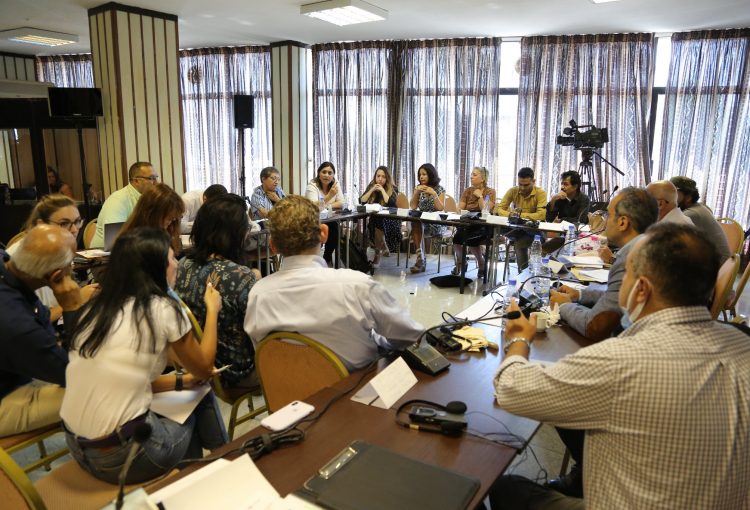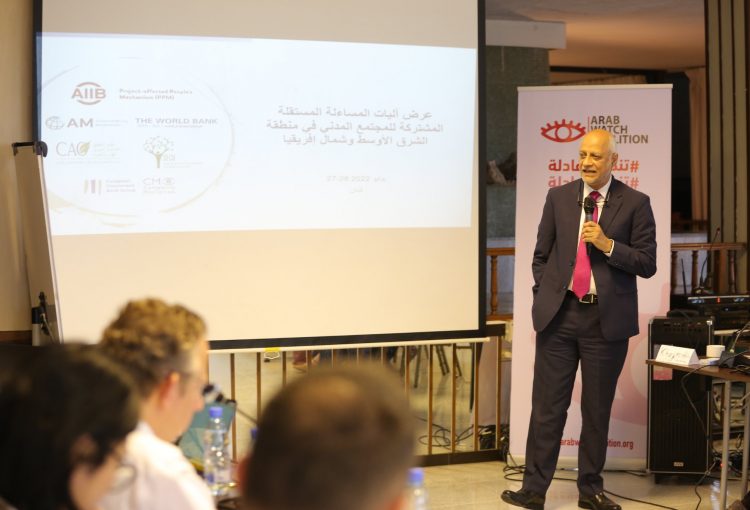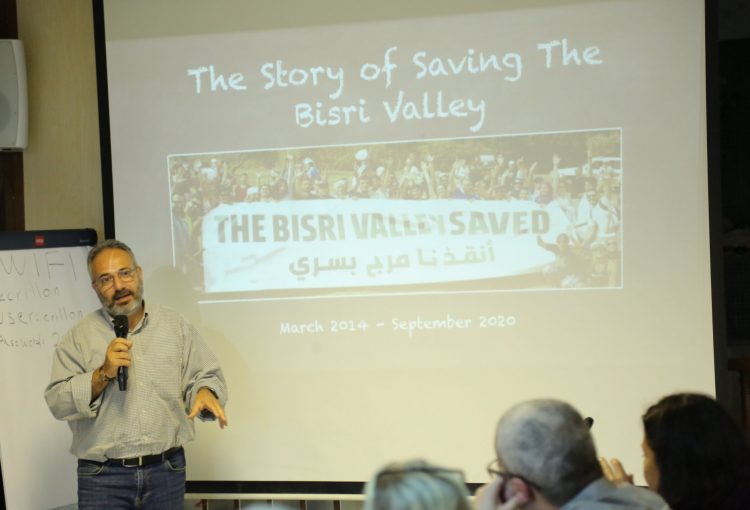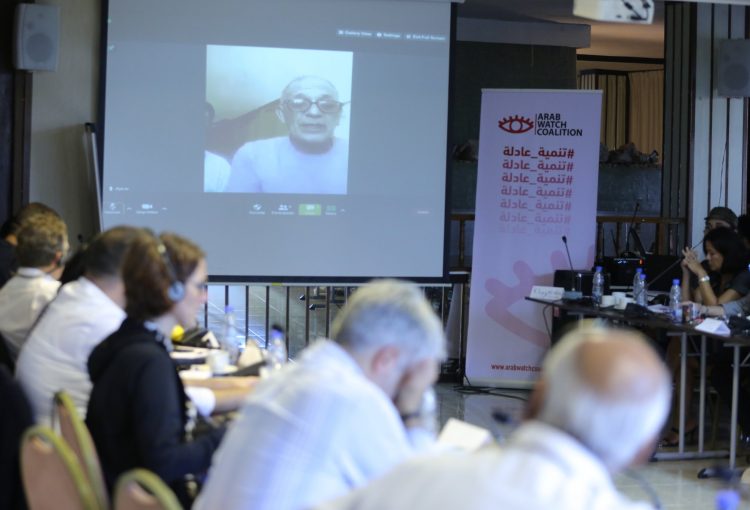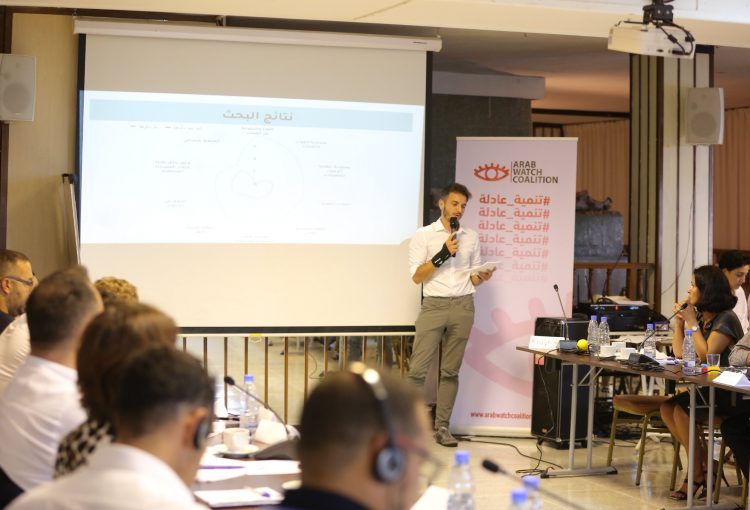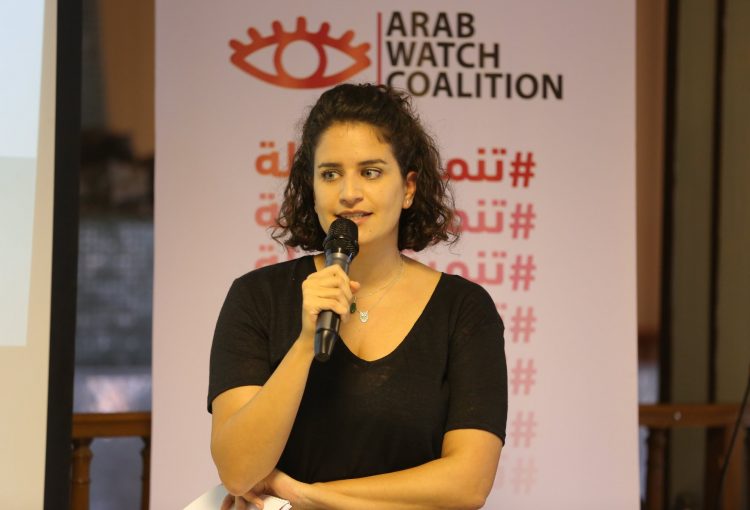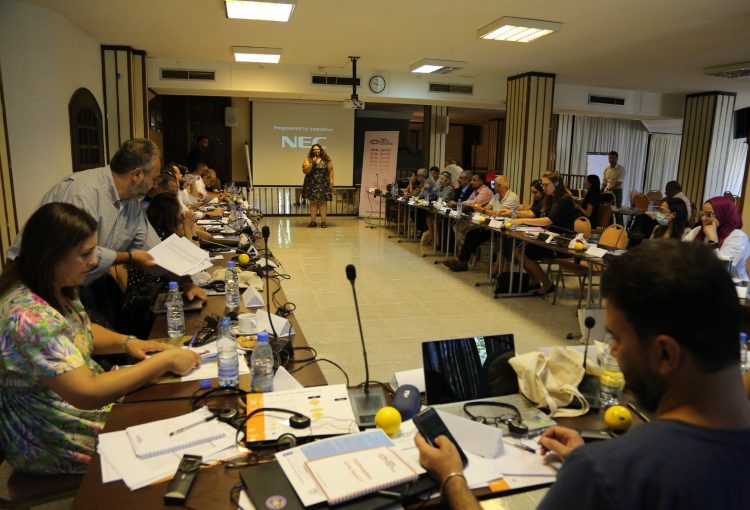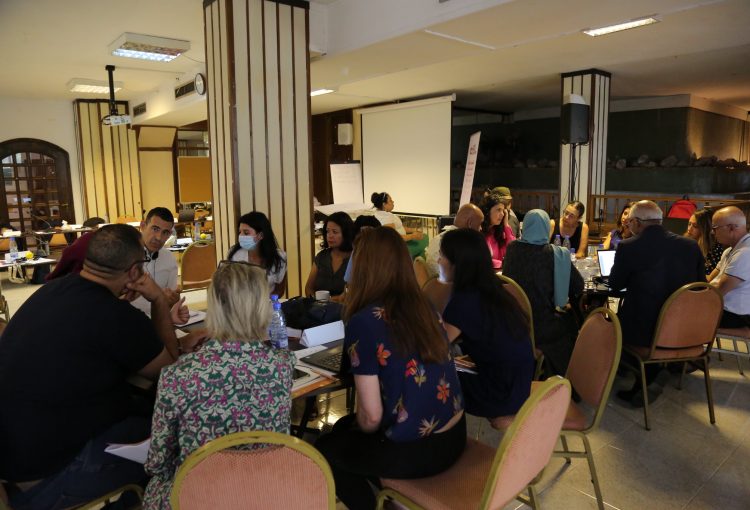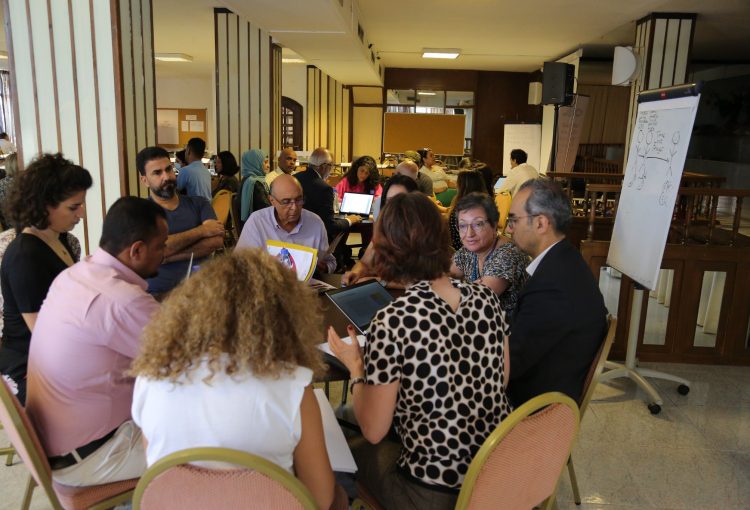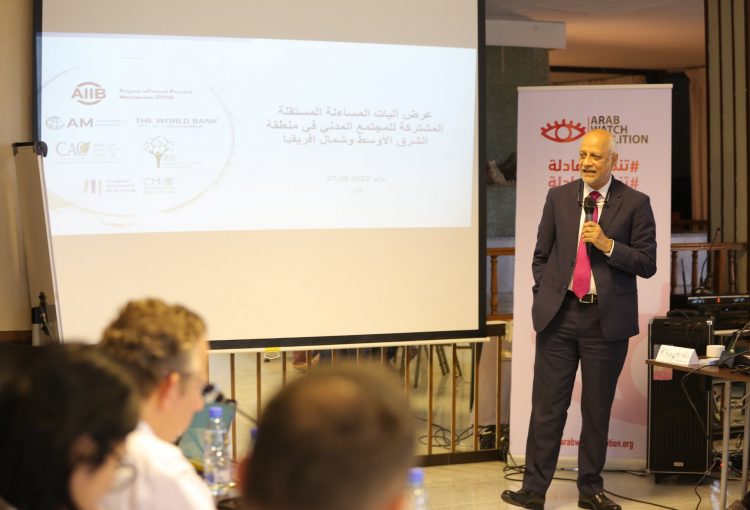Two-Days Workshop to discuss the Independent Accountability Mechanisms (IAMs) of the International Financial Institutions
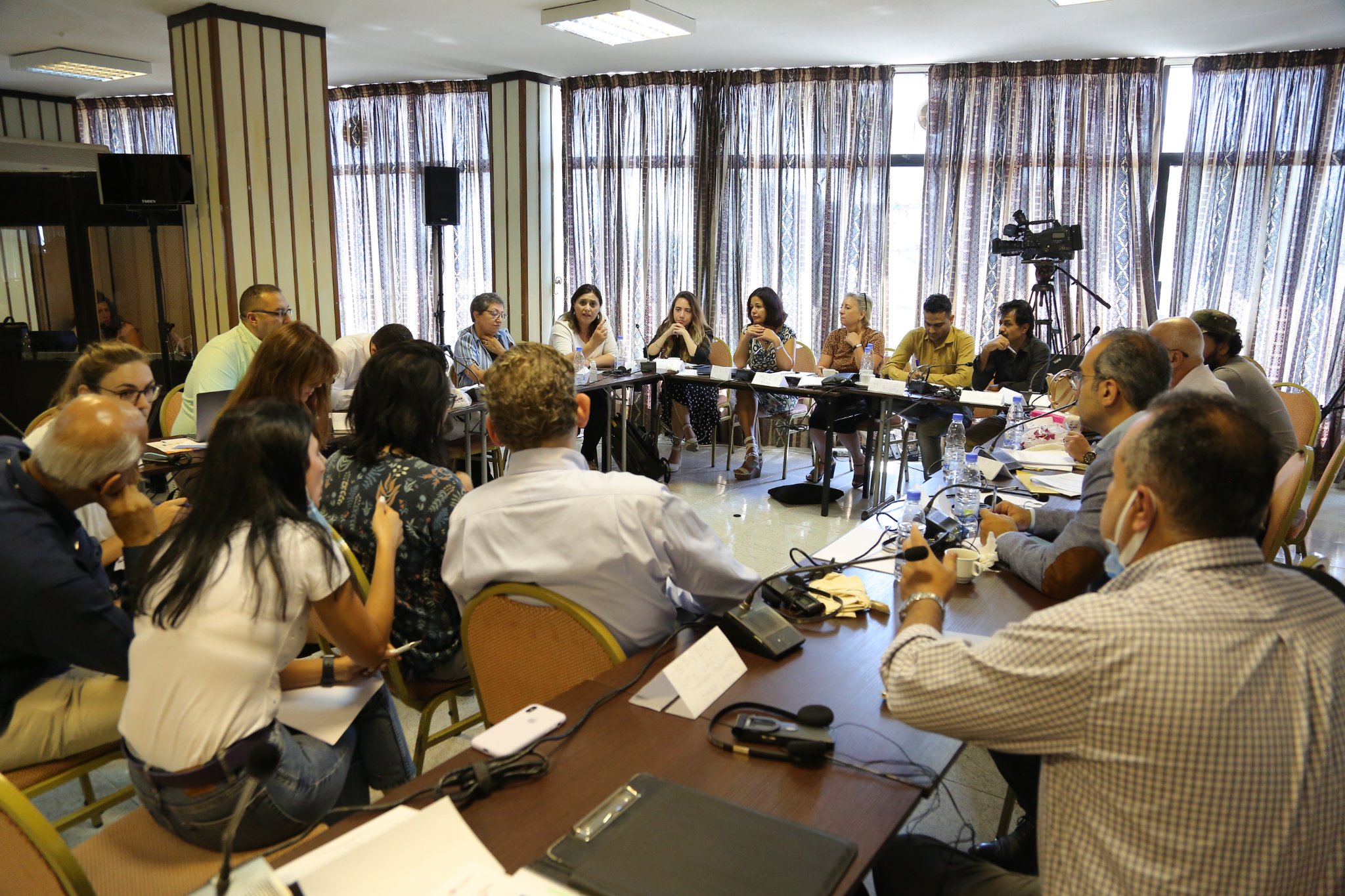
On July 28 & 29, 2022, the Arab Watch Coalition held a workshop in Lebanon about the Independent Accountability Mechanisms (IAMs) for five International Financial Institutions working in MENA Region.
The workshop included representatives from the Office of the Compliance Advisor Ombudsman {CAO} of the International Financial institution, the World Bank‘s Inspection Panel, the Asian Infrastructure Investment Bank’s Project-affected People’s Mechanism (PPM}, the European Investment Bank’s Complaint Mechanism {CM), and the United Nations Development Programme’s Social and Environmental Compliance Unit {SECU). Forty civil society organizations from the MENA Region, including the Coalition’s members, participated in this workshop, as well as representatives from an international partner organization, Accountability Counsel.
The Arab Watch Coalition provided results of a survey that assessed the participants’ understanding of both: the mandate and role of these mechanisms. The indicators emphasized the urgent need to reinforce further outreach activities with civil society organizations, especially in MENA Region.
These mechanisms are in charge of receiving complaints from the communities and individuals who are, or maybe, affected by their International Financial Institutions’ projects. However, many civil society organizations and local communities do not know about these mechanisms. Therefore, the five mechanisms presented their mandates and policies, and they clarified the stages that the process of filing and evaluating a complaint to decide its eligibility goes through. The complaints mechanisms have been presented in five groups to enable discussion with each of the representatives of these mechanisms.
Lama Almoayed and Samer Araabi from Accountability Counsel summarized the findings of a research that examines the complaints from the MENA region that had been submitted to the Independent Accountability Mechanisms (IAMs) of the International Financial Institutions. Despite the increasing number of projects implemented in the MENA Region, the rates of the submitted complaints from the region are still the lowest compared to other regions. This research examines the accountability shortcomings in the region, where the barriers to accessing information, data, language, and technology continue to deprive the local communities of the chance to get their grievances addressed and redressed.
Civil society organizations from Yemen, Lebanon, Egypt, and Morocco shared their experiences with various Independent Accountability Mechanisms (IAMs). They unanimously agreed that resorting to these mechanisms was a complex and lengthy process since it took a lot of effort to reach out to them. Moreover, information about these mechanisms is still not available to most civil society organizations in the region.
The civil society organizations proposed practical solutions to reduce the accountability gaps. In this regard, they provided each of the representatives of the mechanisms with the measures that need to be adopted to facilitate their access and to efficiently respond to the complaints against the projects that have negative impacts on the local communities. There is a significant increasing need for the IAMs to do more outreach activities in all MENA Region’s countries.
Finally, language remains a major barrier that hinders communities from accessing accountability, or even from accessing information about a particular project. While Arabic is the official language of 21 countries where International Financial Institutions operate, few independent accountability mechanisms accept receiving complaints in Arabic. Without providing information in a language that can be understood by the majority, the local communities will remain on the dark side of these projects.

